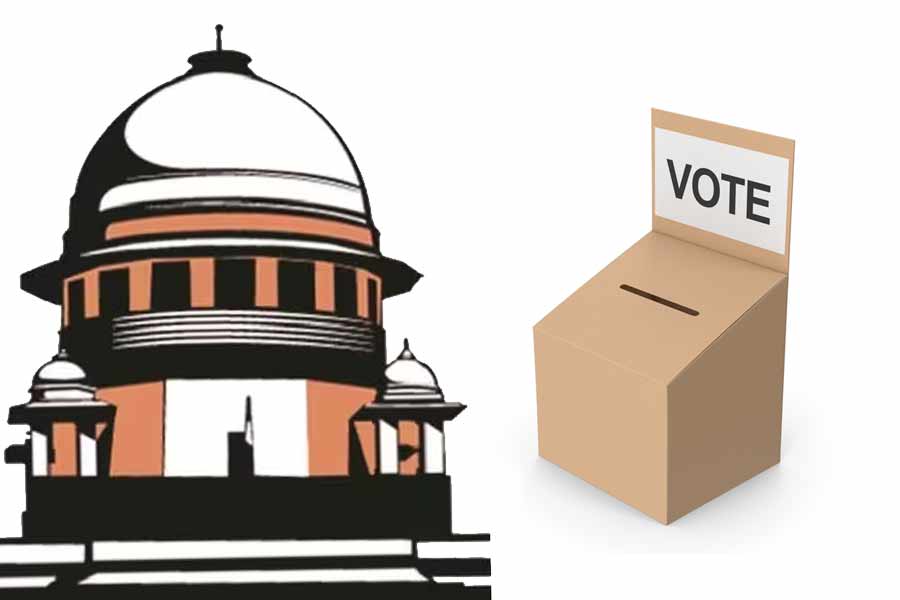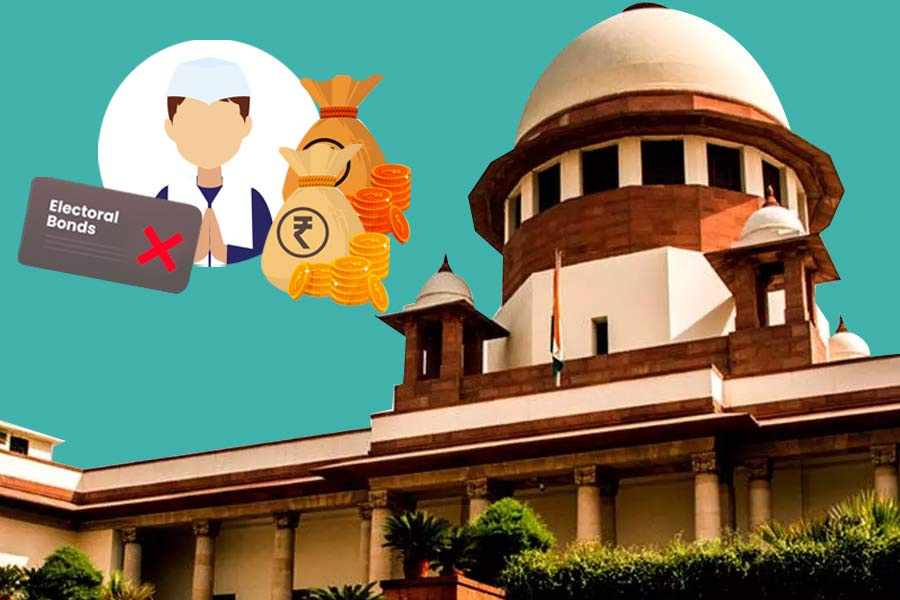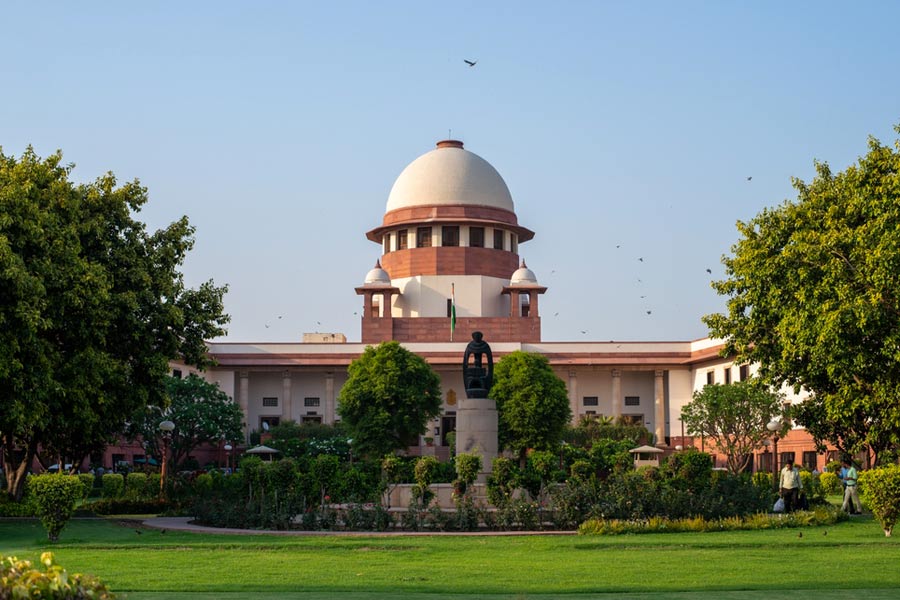Democracy does not begin and end with elections and the integrity of election process is pivotal for sustaining the democratic form of government, the Supreme Court said on Thursday while striking down as unconstitutional the electoral bonds scheme for political funding.
A five-judge constitution bench headed by Chief Justice D Y Chandrachud said the apex court has consistently pointed out the pernicious effect of money on the integrity of the electoral process in India.
"The Preamble to the Constitution describes India as a 'democratic republic': a democracy in which citizens are guaranteed political equality irrespective of caste and class and where the value of every vote is equal. Democracy does not begin and end with elections," Justice Chandrachud, who penned the verdict for himself and on behalf of Justices B R Gavai, J B Pardiwala and Manoj Misra, said.
"Democracy sustains because the elected are responsive to the electors who hold them accountable for their actions and inactions. Would we remain a democracy if the elected do not heed to the hue and cry of the needy?" the CJI said.
Justice Sanjiv Khanna wrote a separate verdict and gave different reasons for concurring with the judgement authored by the CJI.
In his verdict, Justice Chandrachud noted that the question that "we ask ourselves is whether the elected would truly be responsive to the electorate if companies which bring with them huge finances and engage in quid pro quo arrangements with parties are permitted to contribute unlimited amounts".
The bench said the the reason for political contributions by companies was as "open as daylight" and even Solicitor General Tushar Mehta, who argued for the Centre in the matter, did not deny during the arguments that corporate donations are made to receive favours through quid pro quo arrangements.
"The deletion of the proviso to section 182(1) of the Companies Act permitting unlimited corporate contributions to political parties is arbitrary and violative of Article 14 (equality before law)," the bench said.
It noted the top court has consistently held that free and fair elections form an important concomitant of democracy.
"The integrity of the election process is pivotal for sustaining the democratic form of government. The Constitution also places the conduct of free and fair elections in India on a high pedestal," the CJI said.
Referring to Article 324 of the Constitution, the bench said it puts the Election Commission in charge of the entire electoral process commencing with the issue of the notification by the President to the final declaration of the result.
"However, it is not the sole duty of the Election Commission to secure the purity and integrity of the electoral process. There is also a positive constitutional duty on the other organs of the government, including the legislature, executive and the judiciary, to secure the integrity of the electoral process," the apex court said.
It said unlimited contribution by companies to political parties is antithetical to free and fair elections because it allows certain persons or companies to wield their clout and resources to influence policy making.
The bench said the amendment to section 182 of the Companies Act must be read along with other provisions on financial contributions to political parties under the Representation of the People Act, 1951 (RPA) and the Income Tax Act.
"Neither the RPA nor the IT Act place a cap on the contributions which can be made by an individual. The amendment to the Companies Act when viewed along with other provisions on electoral funding, seek to equalize an individual and a company for the purposes of electoral funding," it said.
It said the ability of a company to influence the electoral process through political contributions was much higher when compared to that of an individual.
"A company has a much graver influence on the political process, both in terms of the quantum of money contributed to political parties and the purpose of making such contributions," it said.
The bench said contributions made by individuals have a degree of support or affiliation to a political association.
However, contributions made by companies are purely business transactions, made with the intent of securing benefits in return, it observed.
"In view of the above discussion, we are of the opinion that companies and individuals cannot be equated for the purpose of political contributions," it said.
The bench said the amendment to section 182 was manifestly arbitrary for -- treating political contributions by companies and individuals alike, permitting the unregulated influence of companies in the governance and political process violating the principle of free and fair elections, and treating contributions made by profit-making and loss-making companies to political parties alike.
"The observations made above must not be construed to mean that the Legislature cannot place a cap on the contributions made by individuals. The exposition is that the law must not treat companies and individual contributors alike because of the variance in the degree of harm on free and fair elections," the bench said.













